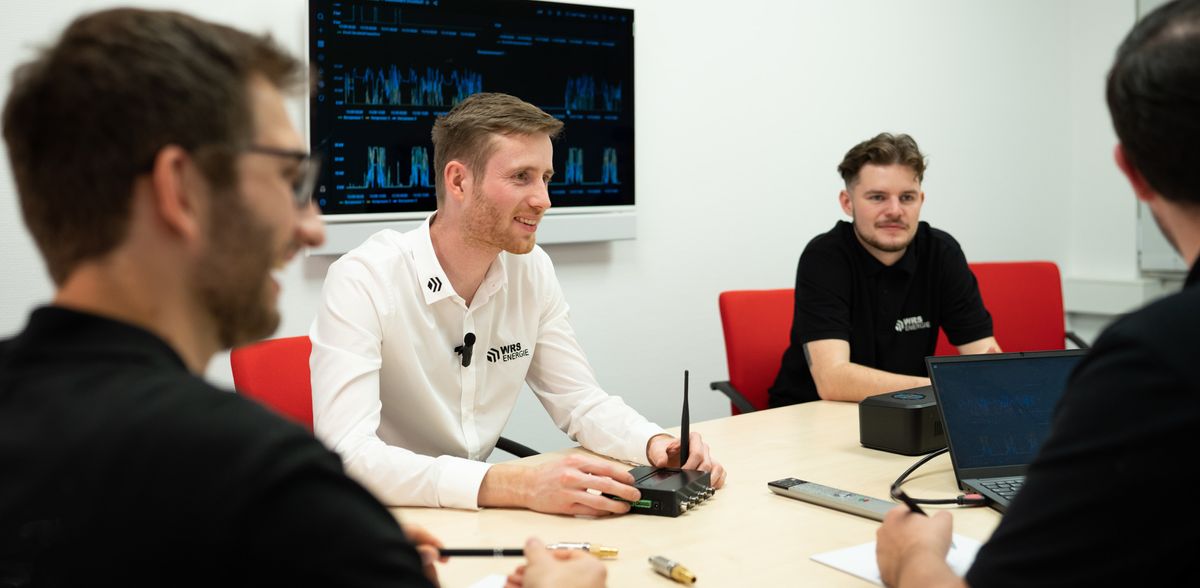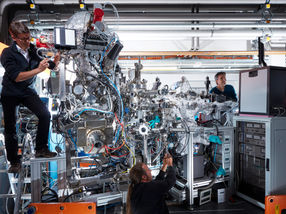Detect leaks and intelligently compensate for measurement errors
Start-up and the University of Stuttgart achieve initial success: potential for groundbreaking changes in the industry
Advertisement
The cooperation between the compressed air start-up WRS Energie and the Institute for Energy Efficiency in Production EEP at the University of Stuttgart started at the beginning of 2023. The collaboration is being subsidized by the state of Baden-Württemberg with €500,000 as part of Invest BW. After one year, the first results are now available. They have the potential to bring about ground-breaking changes in industry.
Compressed air is the most expensive energy source in companies. The good news is that there is great potential for savings of 30% on average, as losses due to leaks in compressed air systems are very common. A lot of compressed air is lost through porous hoses, damaged couplings or leaking seals.
Detect and evaluate leaks
Today, leakage detection works via localized detection using ultrasonic devices or thermal imaging cameras. Although this procedure has proven to be constructive for exact localization, there are major uncertainties when it comes to evaluation. It is difficult to plausibly assess how successful the elimination of the leakage points has been.
This is precisely where a newly developed algorithm for leakage detection comes in. Sensor data is collected digitally and made available to the companies by linking it with AI algorithms. This enables a data-based analysis from which specific recommendations for optimization can be derived. The compressed air system is constantly analyzed to ensure that measures really take effect.
"We have received very positive feedback from our customers," reports the founder and Managing Director of WRS Energie, Lennard Schwidurski. The start-up WRS Energie specializes in helping industrial companies to operate their compressed air system with maximum efficiency. Due to the large number of customers, each with different behavior patterns, anomalies and leaks can be reliably detected. The result is displayed as a leakage indicator. The key figure is monitored through permanent analysis and is suitable for energy management in accordance with ISO 50001.
Intelligently compensate for measurement errors
Temporary data failures make it difficult to analyze measurement data. The gaps make the use of artificial intelligence practically impossible up to now. However, the program developed in the project closes these gaps.
As there are usually no alerts for data failures, they can occur over a longer period of time. The newly developed method compensates for the missing data in statistical surveys in the data matrix on the basis of past data.
The more historical data the algorithm can use, the better the results. Once fully validated, the algorithms will be integrated into WRS Energie's AnalzyAir® so that all customers can benefit from them by the end of 2024 at the latest.
"In the meantime, we are planning additional features and are constantly developing the algorithms further," adds project manager Christian Wolf from EEP at the University of Stuttgart.
Note: This article has been translated using a computer system without human intervention. LUMITOS offers these automatic translations to present a wider range of current news. Since this article has been translated with automatic translation, it is possible that it contains errors in vocabulary, syntax or grammar. The original article in German can be found here.
Other news from the department science
Most read news
More news from our other portals
Something is happening in the chemical industry ...
This is what true pioneering spirit looks like: Plenty of innovative start-ups are bringing fresh ideas, lifeblood and entrepreneurial spirit to change tomorrow's world for the better. Immerse yourself in the world of these young companies and take the opportunity to get in touch with the founders.

































































